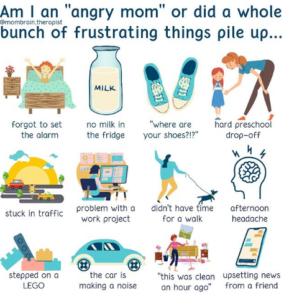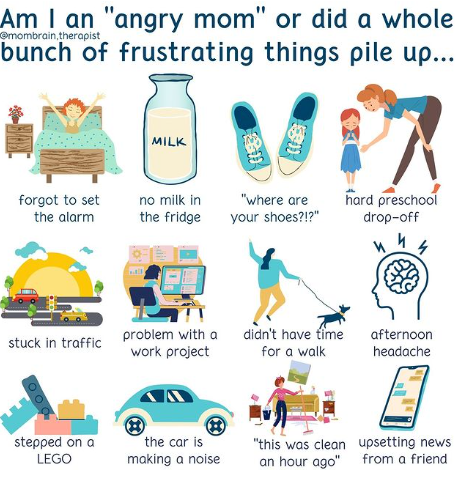
Returning to work after having a baby is a monumental transition that can significantly impact a parent’s mental health.
The Emotional Impact of Returning to Work
- Anxiety and Stress: Many parents experience anxiety about leaving their children and returning to a busy work environment. Concerns about childcare, job performance, and managing both roles effectively can lead to increased stress levels. Trying to juggle both work goals, and parenting goals, can be a challenge. And that doesn’t include other roles we fit under such as cleaner, partner, child etc.
- Guilt, Separation Anxiety and Sadness: Parents often feel guilty about leaving their baby in someone else’s care. Or sad for knowing they might be missing out on time/memories with their child. Separation anxiety can affect both the parent and the baby, making the transition more emotionally challenging.
- Frustration: Children come with all sorts of their own sleep patterns, and germs. Trying to navigate a day at work on less sleep, can be really frustrating and exhausting. Most children when they first go into childcare settings will start to pick up lots of bugs, and start to build their immunity. However, this normally means being sent home for 48 hours , leaving you feeling more of the pressure to return to work , and sometimes fear over what managers are thinking or expecting.
Strategies for Managing Mental Health
- Open Communication: Communicate with your employer about your needs and concerns. Discussing flexible work arrangements, such as part-time hours or remote work, can help ease the transition. Communicate with loved ones, whether it’s partner who might understand, or family and friends to share and validate.
- Professional Help: Sometimes we might not have support around us, or that support doesn’t feel enough. Therapy can provide a safe space to explore your feelings and develop coping strategies for managing stress and anxiety.
- Self-Care: Prioritize self-care to maintain your well-being. This isn’t easy with children taking up a lot of time. But take those minutes where you can, have a cup of tea in peace , enjoy a quiet shower when kids are asleep, sit and watch TV in the evenings, or do some exercise.
- Connect with Other Parents: Joining parent support groups, either in person or online, can offer a sense of community and understanding. Sharing experiences with those in similar situations can be reassuring and informative.
The Role of Employers
- Flexible Work Policies: Employers can support new parents by offering flexible work hours, remote work options, and part-time opportunities. Understanding and accommodating the needs of new parents can lead to a more productive and loyal workforce.
- Parental Leave: Comprehensive parental leave policies that carers leave ( either paid or unpaid), half day leave to attend events, and short notice leave requests can be helpful. Check your contract or ask HR to find out your employee rights. Parents can also take up to 18 weeks unpaid leave until their child turns 18 ( check on Gov website for more info).
- Supportive Environment: Creating a supportive work environment that includes resources like employee assistance programs, mental health services, and parental support groups can significantly benefit new parents.

